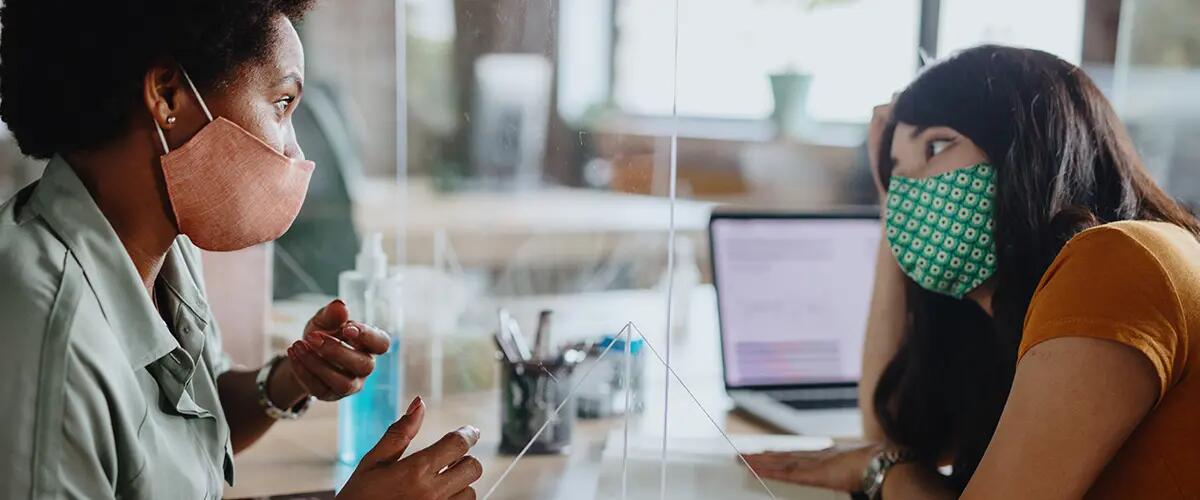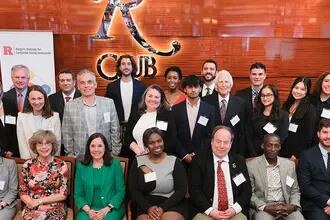
Business Insight: How companies can help build a healthier, more sustainable and equitable economy
On the one-year anniversary of COVID-19 in New Jersey, The Star-Ledger is publishing opinion pieces about the region's experiences over the past year. Today, an expert in corporate innovation writes about how we all can go back to work. Noa Gafni is the executive director of Rutgers Business School's Institute for Corporate Social Innovation.
By Noa Gafni
A year’s worth of economic and employment upheaval has left everyone — employees, communities and society as a whole — feeling anxious, concerned about our health, disconnected from colleagues and suffering other mental health challenges.
The toll on our workforce has been monumental. Nearly 10 million people lost their jobs in 2020 as a result of the pandemic’s economic impact. Seventy-four million essential workers are at risk of contracting COVID-19 while on the job. Two-thirds of white-collar workers continue to work from home, with many complaining of “Zoom fatigue.”
While these issues pale next to the human toll of more than 530,000 deaths and 29 million reported illnesses nationwide, they need to be addressed as we emerge from this crisis.
My research team at the Rutgers Institute for Corporate Social Innovation examined what the future of work may look like as a result of these new pressure points, and how companies can help build a healthier, more sustainable and equitable economy.
We identified five opportunities that businesses can take to “build back better” as we move into a post-pandemic normal. These include investing in training programs to help employees stay ahead of emerging technologies and trends; providing externship and internship opportunities that provide professional development opportunities to students; taking pragmatic steps to help the environment and to help protect against the next society-changing upheaval; focusing on diversity, equity and inclusion within their workforce; and supporting mental health.
We found that this last point — supporting a baseline level of mental health for employees, communities and society — is a foundation for all the rest. While there are benefits to working remotely, our current reality of 100% remote work is not ideal for brainstorming or the social interactions that make for an effective team.
We discovered several ways in which managers and companies can support mental health during this challenging time.
The first step is to support mental health at the individual employee level. This includes pushing for more shifts in the structure of an employee’s day. For example, we found that adding one-on-one check-ins between employee and manager, in which the focus is on the employee as a human being rather than strictly on their output, helps boost morale and connection.
The American Psychiatric Association encourages managers to call out the elephant in the room and acknowledge that everyone is navigating hard times. Pointing out COVID’s real impact shouldn’t be seen as redundant. It is, instead, the necessary first step in reconfiguring expectations and the context in which they exist. At Samsung, Executive Vice President of Strategy and Corporate Communications David Steel refers to the “first-order” and “second-order” impacts of the pandemic — both the immediate and obvious impacts, such as physical health, a first-order impact; but also the second-order “ripple effect” of extended isolation and its impact on issues such as mental health.
The next step is to support mental health among employees at the community level. The pandemic has left many unable to connect with others in the informal ways that we’re used to. In a webcast by the Conference Board, a business research firm, earlier last year, Johnson & Johnson Chief Human Resources Officer Peter M. Fasolo noted that the pandemic has starkly illustrated the need for “collaboration, social connection and the desire for people to be together and drive innovation.”
While one-on-one mental health support is pivotal, it is also necessary to start innovating ways to encourage teams of employees to connect with each other. Group morale boosting by way of Zoom will remain essential for the foreseeable future.
Some businesses have fostered volunteer opportunities to create moments of connection between employees and to allow them to be a part of something larger than themselves and larger than their work-from-home space. Novo Nordisk, for example, chose to support its hometown by hosting a drive-by food drive and encouraging its employees to take part. It may seem like a drop in the bucket compared with the community’s pandemic needs, but for the employees and the town, it was a reminder that we’re all in this together.
Finally, businesses can take steps to support mental health at a societal level. If 2020 taught us anything, it’s that change within our society as a whole is needed, particularly when it comes to racial equity.
COVID-19 has disproportionately impacted people of color and the ripple effects of this reality are felt in many ways. One way the business sector can fill the gap is to acknowledge there is a gap to fill. Involving their human resources departments and making efforts to hire, retain and support the success of employees of color and employees from other underrepresented groups is an important step.
Companies and business owners should also take opportunities to promote the value of grants and other resources that can help people of color keep their businesses amid the pandemic. This is also a great time to diversify supply chains and the vendors fulfilling them. PepsiCo, for example, has committed to double its spending with Black-owned suppliers and to overhaul other areas in their supply chain as a way to create a longer-term impact.
COVID-19 places us in a physical and mental health crisis. Employers cannot afford to ignore it. Instead, they must address it head-on. Companies and business owners have an opportunity to do just that — in their teams, in their communities and across our society overall.
Noa Gafni is executive director of the Institute for Corporate Social Innovation at Rutgers Business School.
Press: For all media inquiries see our Media Kit


